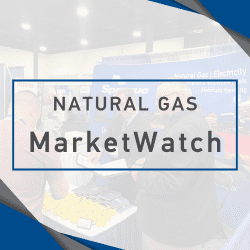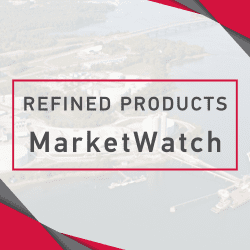Recap: Oil prices traded at five-month highs on Monday, as fighting in Libya raised concerns of tightening supplies. For the first since October, WTI traded above $64.00 a barrel, while Brent breached $71.00 a barrel. Tensions in Libya combined with ongoing production cuts from OPEC and other major oil producers and U.S. sanctions on Venezuela and Iran have pushed prices higher for the sixth straight session. Meanwhile, there are reports that China’s state-owned energy giant Sinopec had resumed buying U.S. oil, which was bullish for the oil market, said consulting firm JBC Energy. According to the U.S. Energy Information Administration, U.S. crude exports to China had dried up from mid-2018 through recent weeks, after having averaged over 300,000 barrels a day in the first half of last year. Prices remained strong throughout the session, with May WTI tacking on $1.32, or 2.1%, to settle at $64.40 a barrel, while June Brent settled at $71.10 a barrel, up 76 cents, or 1.08 percent. May RBOB rose 1% to $1.988 a gallon, the highest finish for a front-month contract since October 10th. May heating oil ended 0.7% higher, at $2.057 a gallon.
Technical Analysis: As expected, WTI continued its move to the upside, surpassing $64.00, as it works toward $65.26, the 62% retracement level set by the range between the October 2018 high of $79.43 and the December low of $43.59. With $65.00 being a previous level of support, we would expect that it will be equally as strong a resistance level. Above this level, additional support is set at $65.70. Support is set at $61.13 and below that at $60.54.
Fundamental News: Saudi Arabia’s Energy Minister, Khalid al-Falih, said it was premature to say whether a consensus existed among OPEC and its allies to extend oil supply cuts but added that a meeting next month would be key. A joint OPEC and non-OPEC ministerial committee known as the JMMC is scheduled to meet in May.
Saudi Arabia’s Energy Ministry said that reports that the country was threatening to sell its oil in currencies other than the US dollar are inaccurate and do not reflect its position on the matter. It said that Saudi Arabia would not risk its key policy priority through a fundamental change to the financial terms of oil trading in its relationships around the world. Saudi Arabia’s Energy Minister, Khalid al-Falih, said there was no change to the country’s long-standing policy of trading oil in US dollars.
The UAE’s Energy Minister, Suhail bin Mohammed al-Mazroui, said that the use of the US dollar as the main oil trading currency could not be changed overnight. He also stated that OPEC and its allies are achieving balance in the oil market. He said that compliance with the output cut agreement between OPEC and non-OPEC producers was expected to be good in April.
The head of Russian state’s direct investment fund, Kirill Dmitriev, signaled that Russia wanted to raise its oil output when it meets with OPEC in June because of improving market conditions and falling inventories.
Genscape reported that crude oil stocks held in Cushing, Oklahoma in the week ending April 5th fell by about 419,000 barrels.
Over 660,000 tons of gasoline were booked between April 1st and April 15th from northern Europe to North America.
IIR Energy reported that US oil refiners are expected to shut in 1.1 million bpd of capacity in the week ending April 12th, increasing available refining capacity by 318,000 bpd from the previous week. The offline capacity is expected to fall to 861,000 bpd in the week ending April 19th.
Early Market Call – as of 8:50 AM EDT
WTI – May $64.15, down 25 cents
RBOB – May $1.9918, up 37 points
HO – May $2.0523, down 53 points
View the Sprague Refined Products Market Watch Report in a downloadable pdf format by clicking below.
Click to view more online:
Heating Oil Supplier
Diesel Supplier
View market updates
View our refined products glossary
Go to SpraguePORT online










